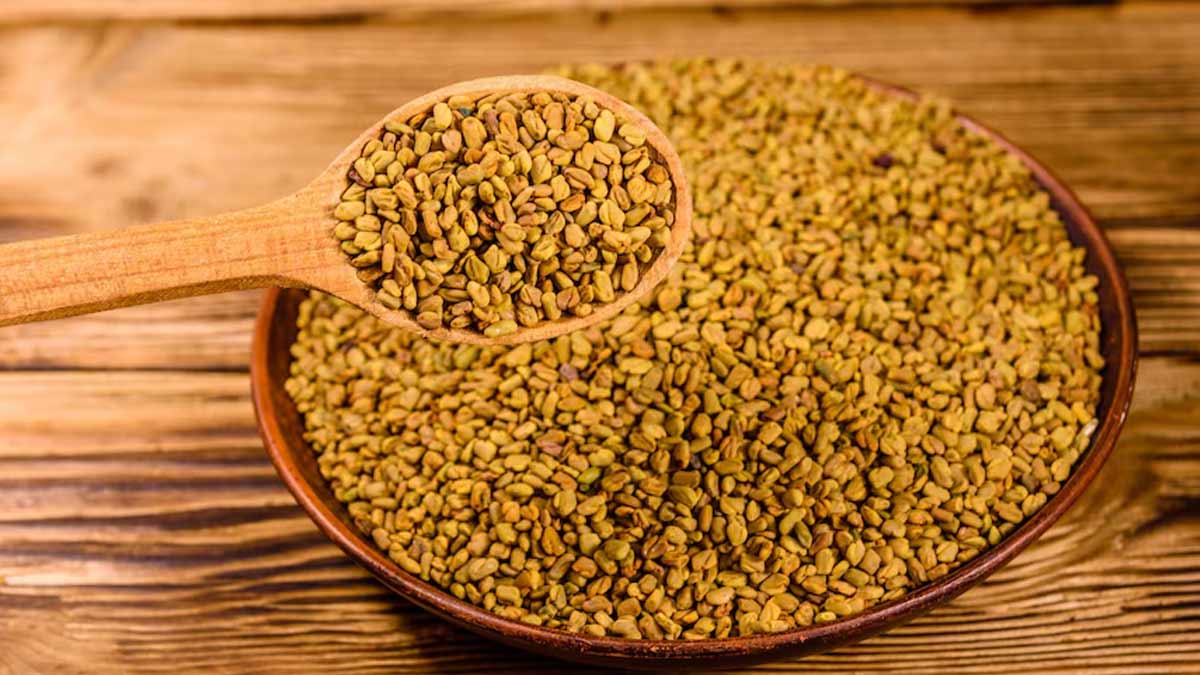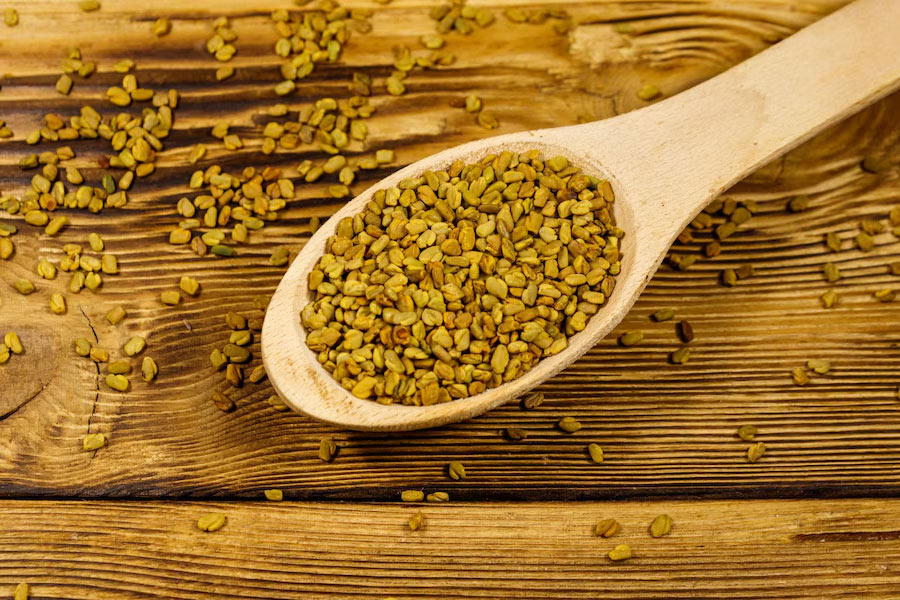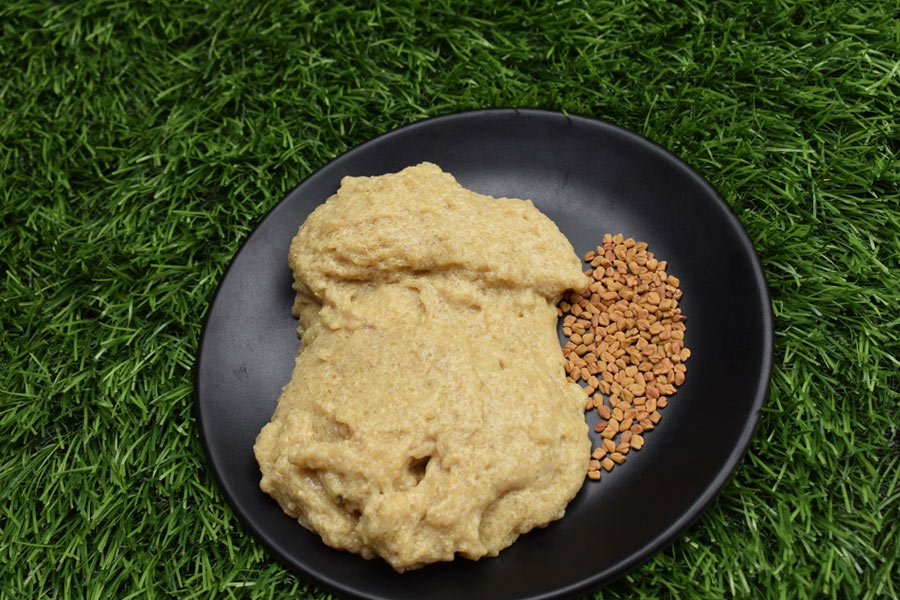
Dealing with eczema can be frustrating, with its itchy and dry patches often causing discomfort. If you’re looking for a natural way to ease these symptoms, fenugreek seeds might be worth trying. These tiny seeds, which you might already have in your kitchen, have been used for centuries in traditional medicine. In this article, we explain how fenugreek seeds can help soothe eczema and give you easy tips on using them in your skincare routine.
Table of Content:-
Eczema and Its Challenges

Eczema, or atopic dermatitis, is a chronic skin condition characterised by inflammation, redness, and itching. The condition often manifests as itchy, dry patches of skin that can become inflamed and infected. Triggers vary from person to person and can include allergens, stress, or irritants.
Why Fenugreek Seeds?
Fenugreek seeds are rich in compounds, such as mucilage, saponins, and flavonoids, which contribute to their anti-inflammatory and soothing properties. According to a 2016 study, the use of fenugreek seeds in eczema or other inflammatory situations is one of the more historical medicinal uses and the practice is still in use today in many countries.
Also Read: Fenugreek Seeds For Blood Sugar Management: Expert Lists Different Ways To Consume It
How Fenugreek Seeds Can Help with Eczema

Anti-Inflammatory Properties
Fenugreek seeds contain anti-inflammatory compounds that can help reduce inflammation and redness associated with eczema. The mucilage in fenugreek seeds forms a gel-like substance when mixed with water, which can soothe irritated skin and create a protective barrier.
Antioxidant Effects
Fenugreek seeds are rich in antioxidants, which help combat oxidative stress and free radical damage. These antioxidants can support skin health and promote healing, which is essential for managing eczema.
Moisturising Benefits
The mucilage in fenugreek seeds also acts as a natural moisturiser. This is particularly beneficial for eczema, as dry skin can exacerbate the condition. Applying fenugreek seed paste or oil can help keep the skin hydrated and reduce flakiness.
Also Read: Dealing With Eczema? Here's How Epsom Salt Can Provide Relief
How to Use Fenugreek Seeds for Eczema Relief
Fenugreek Seed Paste

Ingredients
- 2 tablespoons fenugreek seeds
- Water
Instructions
- Place fenugreek seeds in water and let them soak overnight.
- The next day, drain the water and blend the seeds into a thick paste.
- Next, spread the paste directly onto the affected skin areas.
- Allow it to remain on your skin for 20-30 minutes, then rinse off with lukewarm water.
This paste can help soothe irritated skin and reduce inflammation. It’s important to perform a patch test before applying it to ensure you don’t have an allergic reaction.
Fenugreek Seed Oil
Ingredients
- Fenugreek seed oil
Instructions
- Start by cleansing the affected area and pat dry.
- Apply a few drops of fenugreek seed oil to the eczema-affected areas.
- Apply the oil to the skin and massage gently until it is absorbed.
Fenugreek seed oil can help maintain skin hydration and reduce itching. Look for pure, high-quality oil to avoid irritation from additives.
Fenugreek Tea

Ingredients
- 1 tablespoon fenugreek seeds
- 1 cup water
Instructions
- Simmer the fenugreek seeds in water for around 10 minutes.
- Strain the tea and let it cool.
- Drink the tea daily or use it as a soothing wash for the affected areas.
Precautions and Considerations
While fenugreek seeds are generally safe for topical use, it's important to be mindful of a few precautions:
- Allergies: Conduct a patch test before applying fenugreek seeds to ensure you don’t have an allergic reaction.
- Consultation: Always consult with a healthcare provider or dermatologist before starting any new treatment, especially if you have sensitive skin or are already using prescription eczema medications.
[Disclaimer: This article contains information for informational purposes only, hence, we advise you to consult your own professional if you are dealing with any health issues to avoid complications.]
Also watch this video
How we keep this article up to date:
We work with experts and keep a close eye on the latest in health and wellness. Whenever there is a new research or helpful information, we update our articles with accurate and useful advice.
Current Version